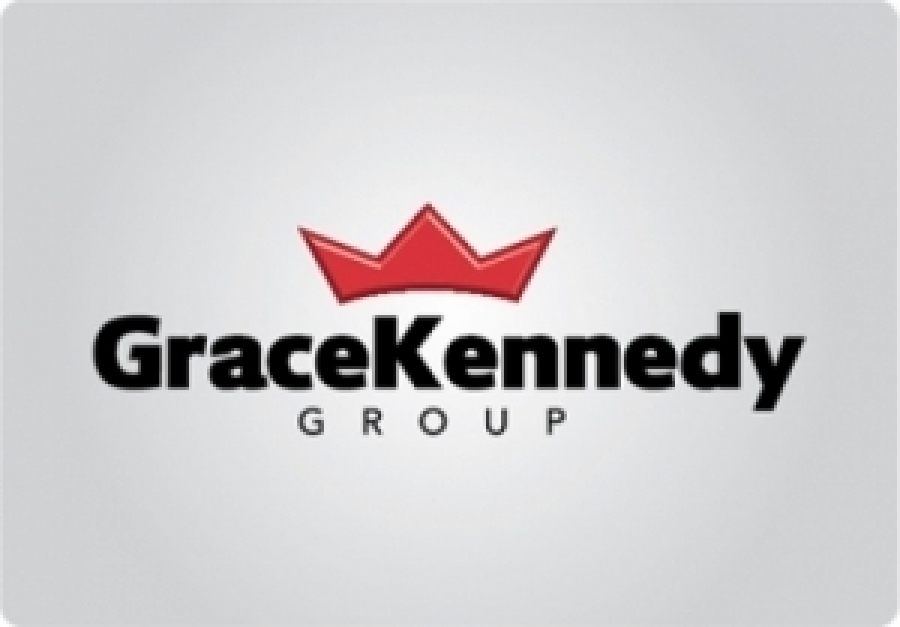The Caribbean business landscape has seen a growing trend of mergers and acquisitions (M&A) as a vehicle for regional companies seeking growth beyond their domestic markets. An increasing number of Caribbean firms recognize the potential of M&A to build scale, expand geographic reach, and tap into international markets. For many of these companies, the relatively small size of the Caribbean economy poses limitations on growth, making M&A a strategic solution to secure larger market shares, diversify revenue sources, and compete globally.
A notable example is Republic Bank, which has extended its reach through acquisitions such as the Bank of Banco Mercantil in the Dominican Republic and Caribbean Commercial Bank in Barbados. These moves have enabled Republic Bank to build a diversified portfolio across the Caribbean and Latin America, positioning itself as a leading financial entity in the region. Similarly, Massy Group, with its broad-based operations, has pursued investments in sectors like automotive in Colombia, marking its commitment to establishing a stronghold in Latin American markets and reinforcing its position in Central and South America.
The adoption of M&A by Caribbean businesses highlights the shift in regional corporate strategy. Traditionally, companies like GraceKennedy, NCB Financial, and Sagicor Financial focused on consolidating their domestic operations. Now, these entities are prioritizing cross-border growth through acquisitions that can enhance their market positions, provide new revenue streams, and strengthen operational capabilities. For instance, Sagicor’s acquisition of ScotiaLife Trinidad & Tobago allowed it to expand its life insurance and financial services offerings, while NCB Financial’s acquisition of Clarien Group in Bermuda extended its presence into North America.
While M&A holds substantial promise for Caribbean firms, it also brings challenges. Integration risks, cultural alignment, and the complexity of managing multinational operations are common hurdles that require careful planning and execution. Companies must focus on strategic fit and synergy to ensure these mergers generate long-term value. Successful M&A deals, as seen with Republic Bank and Massy, illustrate that the right acquisitions can propel Caribbean firms beyond regional limitations and onto the international stage.
Mergers and acquisitions are not merely growth strategies but represent a transformative approach for Caribbean companies striving to establish themselves in the global economy. By pursuing strategic acquisitions, Caribbean businesses can overcome the constraints of small domestic markets, improve scalability, and compete on an international level.
However, achieving success in M&A demands more than financial investment; it requires thorough integration planning and alignment with the overarching strategic goals of each company. As more Caribbean firms embrace M&A, they are setting the stage for a bolder, globally competitive Caribbean business ecosystem, poised to navigate the demands and opportunities of a dynamic global market.

CIBC FirstCaribbean Grenada Business Acquisition
On July 14th, 2023, Grenada Co-operative Bank Ltd. acquired certain assets and deposit liabilities of CIBC FirstCaribbean Grenada business. This saw substantial growth with the addition of approximately $360 million in total assets.
The loan portfolio acquired was $154 million and $398 million in deposit liabilities. Of note, the acquired facilities contributed only marginally to the Bank’s overall financial performance for the year ended September 30th, 2023.
As a safeguard, the Bank strategically pursued $50million of additional capital in the form of subordinated debt which buttressed its Tier II buffer, strengthening its overall capital position.
This acquisition is a significant development in the evolution of the banking system of Grenada, Carriacou and Petite Martinique. The Bank acquired a lean book of business that bolts on well to its current business model with the intent of providing sought-after profitability, increased market share, and company momentum in a sustainable, long-term way. This all redounds to the achievement of the Bank’s mission of ensuring a fair return to shareholders and contributing to the well-being of the citizens where we operate.
Darryl Brathwaite Acc. Dir Chairman Grenada Co-operative Bank Ltd.
 Massy Strategy, Growth and Global Expansion Update
Massy Strategy, Growth and Global Expansion Update
The Group’s Corporate Strategy remains consistent and follows
from the new vision statement with three simple components:
• Growth and Global Expansion
• Capital Management to Increase Value for Stakeholders
• Operating with a Caribbean Heart
In FY2023, we successfully closed three significant acquisitions:
Rowe’s IGA supermarkets in Jacksonville, Florida (US$47 million), Air Liquide operations in Trinidad ($51.5 million with a deferred consideration) and IGL Jamaica (US$142 million).
1 Rowe’s IGA Supermarkets: independent supermarket chain of 7 stores in Jacksonville, Florida USA; Rowe’s IGA acquisition closed on December 12th and is a major step in achieving the Group’s global vision as it provides an excellent beachhead for further niche supermarket acquisitions in the United States, while providing strength in hard currency cash generation.
2 Air Liquide Trinidad & Tobago Ltd: a manufacturer and supplier of industrial and medical gases in Trinidad & Tobago; In January, the Group acquired Air Liquide’s operations in
Trinidad solidifying the Group’s position as the leading industrial gas manufacturer and distributor in the region and generating additional export opportunities.
3 IGL (St. Lucia) Limited: the parent company of a distributor of LPG, and manufacturer and distributor of industrial and medical gases in Jamaica. The IGL Jamaica acquisition closed in May 2023, and this consolidated the Group’s position as the leading LPG business in the region and will also provide access to additional economies of scale to bring efficiencies to consumers.
The Group deployed over US$240.5 million in capital to consummate these transactions and during the fiscal year. An additional TT$1.1 billion (US$158 million) in Revenue and TT$142 million (US$21 million) in PBT were derived specifically from the three deals in aggregate. We are actively engaged in efforts to integrate the companies within the Massy Group. These integration efforts are not only focused on capturing the desired synergies for enhanced financial performance, but also on ensuring cultural integration and alignment with our core values for wider stakeholder value creation.
Mr. Gervase Warner President & Group CEO
 JMMB Group Strategic Investment In Sagicor Financial Corporation
JMMB Group Strategic Investment In Sagicor Financial Corporation
In 2019, the JMMB Group strategically invested in SFC to further diversify its business model and revenue streams. Currently, the Group holds a 23.62% stake in SFC, making it the Company’s single largest shareholder. SFC provides the Group with country and business line diversification, operating in 21 countries and as a major player predominantly within the Insurance industry. This was particularly beneficial to the Group in the adverse operating environment, which negatively impacted the investment business of financial services in the region.
The JMMB Group’s investment in SFC contributed J$20.3B in Share of profit of associate, which was significantly driven by one-off gains on its acquisition of the ivari Insurance Company in Canada. The US$250M or 22.52% acquisition of SFC in 2019 has proven to be a good diversification investment that continues to provide solid returns for the JMMB Group.
However, the total contribution from business lines and share of profit from SFC were tempered by prudent loan loss provisioning of J$12.6B for a startup greenfield operation in the Energy sector, which was rated Investment grade by CariCRIS and, as such, was an allowable asset which received wide support from the financial sector in the region.
Mr. Ellis reported that JMMB Group’s US$250M investment in SFC represented 23.32% stake in the Associate Company and was currently valued at J$40.4B.
SFC’s contribution to profit for the year amounted to J$2.7B. This contribution to net profit during a challenging period further validated the strategic importance of this investment and the benefits to be derived from the Group’s Revenue Diversification Strategy. The Group received consistent flows of dividends from the SFC which for the year ended March 31, 2023 totalled J$1.1B. SFC’s continued push to strengthen its financial position and create growth opportunities augured well for the Company and by extension the JMMB Group. Mr. Ellis highlighted that the JMMB Group continued to be excited about its investment in SFC. SFC continues to implement its strategic initiatives and recently announced a potential acquisition of Ivari in Canada. The transaction was in closure phase and management expects very positive results for the JMMB Group.
Keith Duncan CD Group Chief Executive Officer JMMB Group of Companies
 Wigton Diversification, Investment Joint Ventures, and Investment In Associates
Wigton Diversification, Investment Joint Ventures, and Investment In Associates
Wigton has positioned itself well for success and resilience. The Company is committed to building a sustainable energy future through its strategy of investing in green energy and clean technologies locally and regionally.
During the year the Company continued its foray into green energy and clean technology diversification through its investments in associates and joint ventures, and also participated in the tender issued by the Generation Procurement Entity in September 2023 by submitting a 49.83 MW solar technology bid.
On April 5, 2022 the Company and Innovative Energy Company DBA IEC SPEI Limited, entered into two (2) joint venture agreements, one specifically in respect of the Norman Manley International Airport Solar project which was successfully completed and commissioned on May 31, 2022 and the other generally for the design, installation, operation and maintenance of green energy solutions.
The latter joint venture was registered as the Wigton-IEC Joint Venture (“JV”) under and in accordance with the Registration of Business Names Act. The JV has to date successfully bid on the design, supply and installation of distributive solar photovoltaic systems at certain Essex Valley Agricultural Development Project locations in St. Elizabeth/Manchester, Jamaica which design, supply and installation is scheduled to be completed in the second quarter of the financial year ending March 31, 2025 and commissioning at a later date pending readiness for same. The JV was also successful in its bid for the design, supply, installation and commissioning of solar photovoltaic systems at the Sangster International Airport, Montego Bay, Jamaica and which project is now being executed.
In March 2022 Wigton acquired 21% of the shareholdings of Flash Holdings Limited, a St. Lucian company which is the sole shareholder of Flash Motors Company Limited (“FMCL”), a Jamaican company, that distributes electric vehicles and electric vehicle charging infrastructure.
During the year FMCL took active steps to acquire an electric vehicle distributorship. This culminated in successful negotiations with the Geely Holdings Group in relation to their Zeekr and Riddara brand of electric vehicles and the company acquiring an initial order of twentysix (26) Riddara electric vehicles which will be sold regionally.
Dennis Chung Chairman
 ANSA Mc Al Mergers, Acquisitions And Strategic Partnerships Remain Key Aspect Of Group’s Growth Strategy.
ANSA Mc Al Mergers, Acquisitions And Strategic Partnerships Remain Key Aspect Of Group’s Growth Strategy.
Our recent acquisition, COLFIRE, has already made noticeable contributions to the Group’s
performance, laying the foundation for growth and innovation in the Insurance sector. During the year, the Group also secured a minority interest in the Bahamian Brewery and Beverage Company Limited and entered into contract brewing arrangements with local partners in Canada and Greece. In Guyana, ANSA Motors introduced Hyundai construction equipment to support that country’s booming building sector. We also introduced our paint brands, Penta, Sissons and Berger, as well as our concrete and clay blocks, with the launch of our ANSA Building Solutions business.
Looking ahead, we believe our Group’s value proposition, talented employees, good governance practices and strong balance sheet will serve us well in navigating any challenges which may arise. We are focused on strengthening and boosting the value of our existing operations while exploring strategic business opportunities. I am pleased to announce that in April 2024, we entered into a joint venture agreement with Globus Spirits Limited, a leading player in the Indian alcoholic beverage industry. The new joint venture company will engage in manufacturing, sourcing and distribution of beer in India, with an initial focus on introducing our flagship brand, Carib, to the Indian market. We believe that the company will play a pivotal role in meeting consumer demand and driving growth in the beverage sector in India.
A. Norman Sabga LLD (Hon.) UWI; (H.C.) UTT Executive Chairman ANSA Mc Al Limited (Group)
 GraceKennedy Pursuing Strong Partnerships And Strategic Acquisitions Are Key To Realising Our 2030 Vision.
GraceKennedy Pursuing Strong Partnerships And Strategic Acquisitions Are Key To Realising Our 2030 Vision.
In 2023, we executed on several initiatives in keeping with this long-term goal. M&A continued to play an integral role in our growth strategy.
Our acquisition of Scotia Insurance Caribbean Limited (SICL), subsequently renamed GK Life Insurance Caribbean Limited, was completed in March. In addition to the seven Caribbean markets GK Life Insurance Eastern Caribbean Limited already served (Anguilla, Antigua and Barbuda, Dominica, Grenada, St. Kitts and Nevis, St. Lucia, and St. Vincent and the Grenadines), GK Life Insurance Caribbean Limited now offers credit protection insurance in the five territories where SICL operated (Barbados, Belize, the British Virgin Islands, the Cayman Islands, and the Turks & Caicos Islands). Both companies operate under the GK Life Insurance brand. In 2023, GK Life Insurance Eastern Caribbean Limited
also received regulatory approval to begin operating in St. Maarten, which will add a thirteenth market to its business.
In February 2023, we increased our ownership in Catherine’s Peak Bottling Company Limited from 35% to 70%. Catherine’s Peak Bottling Company Limited, the owner of the Catherine’s Peak pure spring water brand, is now a subsidiary of our Group. Additionally, in October, we acquired Unibev Limited, a manufacturing company specialising in fully integrated beverage production.
These acquisitions solidify GK’s position in Jamaica’s spring water market while vertically integrating our spring water operations. In alignment with our Jamaican food business’s growth strategy to acquire strong consumer brands with local and international potential, the acquisitions also further our plan to position GK as a regional leader in food and beverage manufacturing.
Don Wehby, OJ Group CEO, GraceKennedy Limited


 Businessuite Markets4 weeks ago
Businessuite Markets4 weeks ago
 Businessuite News241 week ago
Businessuite News241 week ago
 Businessuite News244 days ago
Businessuite News244 days ago
 Corporate Feature1 week ago
Corporate Feature1 week ago
 Businessuite News24 International1 week ago
Businessuite News24 International1 week ago
 Businessuite Women2 weeks ago
Businessuite Women2 weeks ago
 Businessuite Markets6 days ago
Businessuite Markets6 days ago
 Business Insights4 weeks ago
Business Insights4 weeks ago

 iCreate Limited (“iCreate”) is pleased to announce that it has entered into an Agreement for Sale of a thirty percent (30%) interest in Visual Vibe.Com Limited (“Visual Vibe”) to a strategic investment group led by Mr. Anthony Dunn.
iCreate Limited (“iCreate”) is pleased to announce that it has entered into an Agreement for Sale of a thirty percent (30%) interest in Visual Vibe.Com Limited (“Visual Vibe”) to a strategic investment group led by Mr. Anthony Dunn.







 In Q1 2025, the Group delivered strong top-line growth, with revenue increasing by 10% year-over-year to TT$1,808 million. Net cash flows from operating activities also increased significantly—by 81% to TT$244 million—underscoring the strong operational health of our business and our ability to generate cash efficiently. Group Profit Before Tax (PBT) stood at TT$93 million, a 46% decline compared to the prior year. Earnings Per Share (EPS) decreased by 49% to TT$0.31. Adjusted EBITDA declined modestly by 6% to TT$278 million.
In Q1 2025, the Group delivered strong top-line growth, with revenue increasing by 10% year-over-year to TT$1,808 million. Net cash flows from operating activities also increased significantly—by 81% to TT$244 million—underscoring the strong operational health of our business and our ability to generate cash efficiently. Group Profit Before Tax (PBT) stood at TT$93 million, a 46% decline compared to the prior year. Earnings Per Share (EPS) decreased by 49% to TT$0.31. Adjusted EBITDA declined modestly by 6% to TT$278 million.
 Currently holding approximately 73% of Key’s shares, GKFG’s move towards full ownership could lead to significant organizational changes, including the potential delisting of Key from the Jamaica Stock Exchange (JSE) and the subsequent listing of GKFG.
Currently holding approximately 73% of Key’s shares, GKFG’s move towards full ownership could lead to significant organizational changes, including the potential delisting of Key from the Jamaica Stock Exchange (JSE) and the subsequent listing of GKFG. The potential restructuring aligns with GraceKennedy’s long-term vision of becoming a global consumer group by 2030, focusing on both food and financial services . By fully integrating Key Insurance into GKFG and positioning GKFG as a listed entity, GraceKennedy can leverage synergies across its financial services, drive innovation, and enhance customer offerings.
The potential restructuring aligns with GraceKennedy’s long-term vision of becoming a global consumer group by 2030, focusing on both food and financial services . By fully integrating Key Insurance into GKFG and positioning GKFG as a listed entity, GraceKennedy can leverage synergies across its financial services, drive innovation, and enhance customer offerings.

 The transaction, which is subject to customary closing conditions, will see Catherine’s Peak Bottling Company Limited, owner of the Catherine’s Peak spring water brand, become a wholly owned subsidiary of GraceKennedy. Frank James, CEO of GK Foods – Domestic, commented “In recent years, GK has been strengthening our position in Jamaica’s growing spring water market. This has included our 2021 acquisition of 876 Spring Water, our 2023 acquisition of Unibev, and the steady increase of our stake in Catherine’s Peak.”
The transaction, which is subject to customary closing conditions, will see Catherine’s Peak Bottling Company Limited, owner of the Catherine’s Peak spring water brand, become a wholly owned subsidiary of GraceKennedy. Frank James, CEO of GK Foods – Domestic, commented “In recent years, GK has been strengthening our position in Jamaica’s growing spring water market. This has included our 2021 acquisition of 876 Spring Water, our 2023 acquisition of Unibev, and the steady increase of our stake in Catherine’s Peak.”

 Massy Strategy, Growth and Global Expansion Update
Massy Strategy, Growth and Global Expansion Update JMMB Group Strategic Investment In Sagicor Financial Corporation
JMMB Group Strategic Investment In Sagicor Financial Corporation Wigton Diversification, Investment Joint Ventures, and Investment In Associates
Wigton Diversification, Investment Joint Ventures, and Investment In Associates GraceKennedy Pursuing Strong Partnerships And Strategic Acquisitions Are Key To Realising Our 2030 Vision.
GraceKennedy Pursuing Strong Partnerships And Strategic Acquisitions Are Key To Realising Our 2030 Vision.



